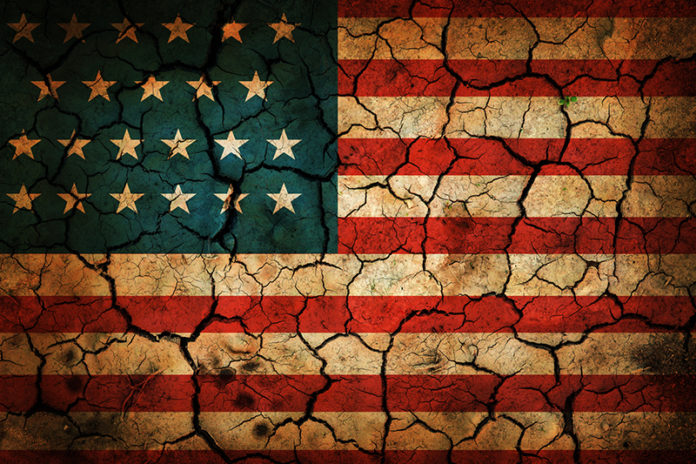The United States has rarely been as divided as it is today — red states vs. blue states, vaxxers vs. anti-vaxxers, the woke mob vs. insurrectionists and Houston Astros fans vs. decent human beings. Some people think the problem is not that Americans are too divided but that they are not divided enough. They have a suggestion: a national divorce.
It may seem absurd, but as journalist Richard Kreitner told me, “When Ben Shapiro and Sarah Silverman actually agree on something, maybe it’s worth paying attention to.” Shapiro is a caustic Trumpian radio talk show host. Silverman is a lefty comedian who despises former President Donald Trump with every fiber of her being. What they agree on is that maybe this whole United States arrangement has outlived its usefulness.
After California Gov. Gavin Newsom survived a September recall election, Shapiro pronounced the state “irredeemable” and said “a friendly separation” of Republican and Democratic states may be in order. On her podcast, Silverman wondered if we should “divide up into two or three countries.”
These comments may be dismissed as the jabber of entertainers who will do anything to attract attention. But they express a sentiment that is gaining purchase among ordinary Americans.
A recent poll by Bright Line Watch and YouGov found 37% of respondents indicating a “willingness to secede.” The pollsters anticipated that such feelings would ebb after the turbulent election aftermath, including the Jan. 6 Capitol riot. But “rather than support for secession diminishing over the past six months, as we expected, it rose in every region and among nearly every partisan group.” The secessionists amount to a majority of Republicans in the South and nearly half of Democrats on the West Coast.
Some states are essentially treating federal dictates as illegal usurpation. Gov. Greg Abbott of Texas has banned private companies from imposing vaccine mandates on their employees, which President Joe Biden’s administration is requiring of many. Nine states have forbidden enforcement of federal gun laws.
Most of these states — surprise! — are among those that treated Abraham Lincoln’s election to the presidency as intolerable. But states such as California and Massachusetts made a practice of suing the federal government to block policies imposed by Trump.
The passage of his administration into history has soothed some people while enraging others. The latter have gone to great lengths to overturn the 2020 election, based on spurious claims that it was rigged against Trump.
The GOP’s embrace of this anti-democratic campaign raises reasonable fears that the 2024 election will be stolen by Republicans bent on gaining power at any price. In that case, it would not be entirely shocking to see a number of states, from New England to California, deciding to depart. The two parties and their followers increasingly resemble a married couple who can no longer live under the same roof.
In his 2020 book “Break It Up: Secession, Division and the Secret History of America’s Imperfect Union,” Kreitner argues that these impulses are part of our national DNA.
The American Revolution, he notes, “was fought not to create a union but to destroy one.”
The diverse colonies joined together only with great difficulty and only because cooperation was necessary to throw off British rule. It was no sure thing that they would prove capable of remaining united. It took enormous effort, ingenuity and a lot of luck for the new nation to hold together in the aftermath. Even those were not enough to avert a cataclysmic civil war.
The union survived — in a formal sense. But it could be argued that the free states and the slave states were essentially two countries before the Civil War and remained two countries afterward, with radically different laws and norms. Not until the 1960s did Americans decide to end the system of Jim Crow that set the South apart.
But the past two decades have seen a renewed divergence, with many states in the mountain West and Great Plains aligning politically and culturally with the South, while the Northeast and Far West states find common interests.
We assume that the United States will survive in the coming years and decades because it has survived for so long already. But for many of our citizens, staying together comes at a painful and ever-rising price.
At some point in the not-too-distant future, some states may decide their only option is to leave. And the others may be happy to let them go.































